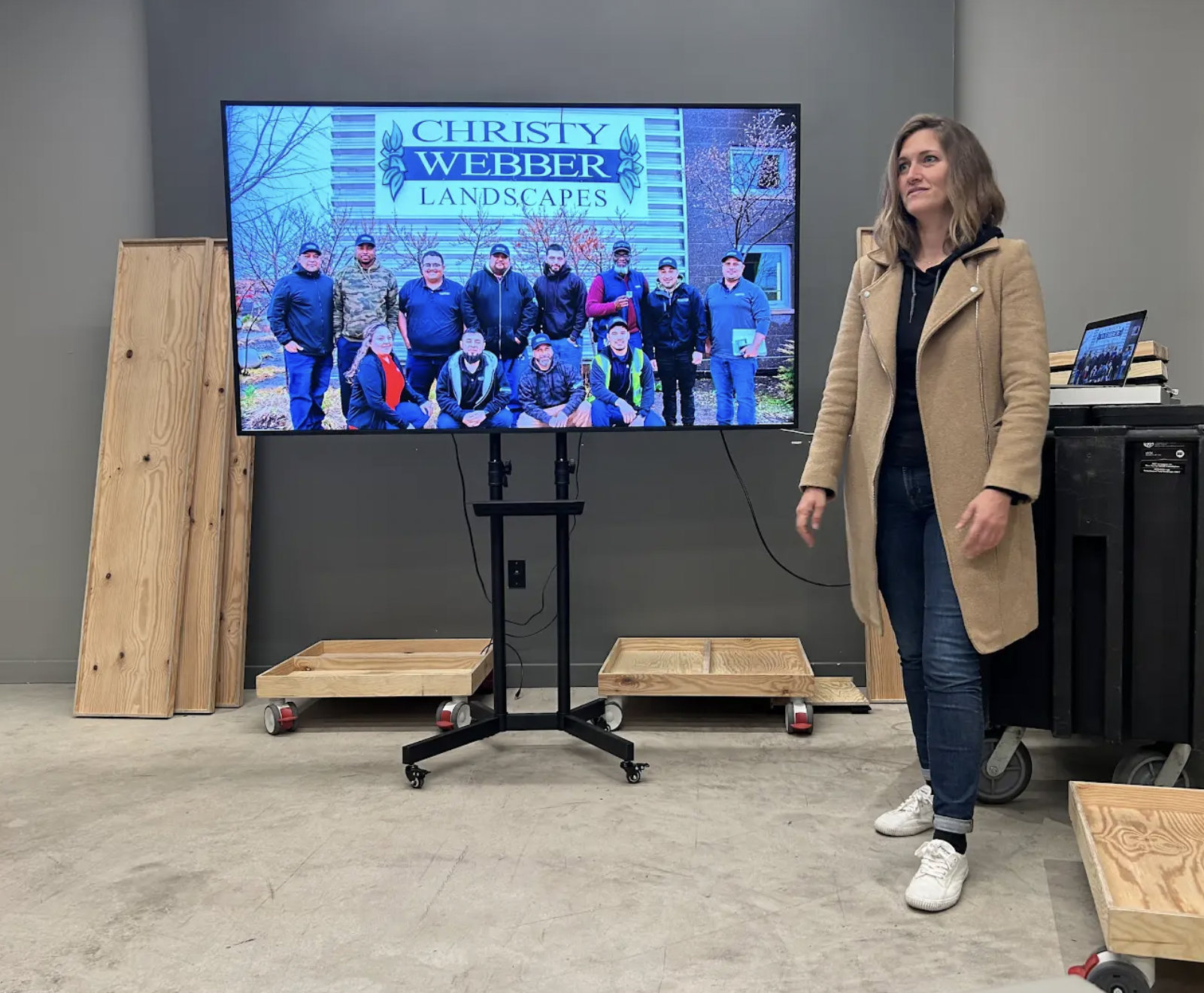
"I’m tired of making ghost bikes," said Christina Whitehouse. She's the founder of Bike Lane Uprising, a Chicago-based civic tech platform that makes it "easy to report cars in bike lanes and hold violators accountable." BLU also helps organize the installation of white-painted "ghost bike" memorials to people killed while riding bikes that are installed along too many of Chicago’s streets. "We buy materials for ghost bikes in bulk. We have them in our basements," she said.
Whitehouse was speaking in a makeshift conference room in the Fulton Market Specialized bike store to about a dozen attendees, introducing a new project by BLU intended to prevent bike lane obstructions before they happen. The volunteer-run organization has been quietly developing a bike lane training program for fleet operators – some of the most frequent and potentially dangerous bike lane obstruction offenders. The four-hour training program focuses on bike lane safety, types of bike infrastructure, and the corresponding laws.
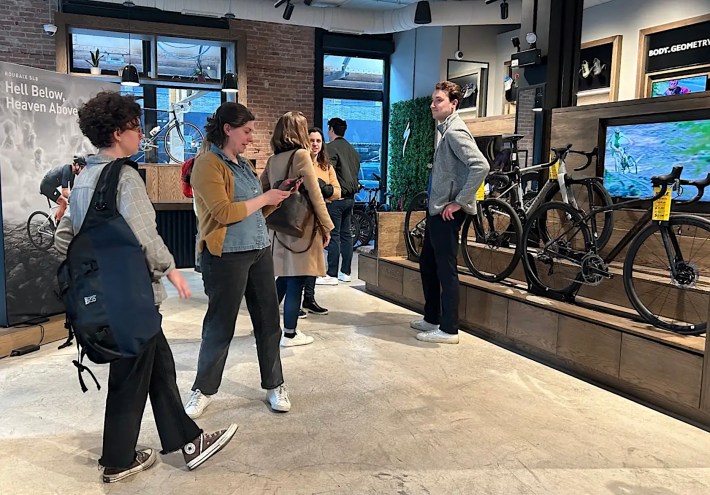
BLU held its first training for fleet managers at Christy Webber Landscapes, whose vehicles had been reported over 30 times in a single year on the BLU app. In her presentation, Whitehouse shared a BLU Instagram post that received a lot of attention. It shows a Christy Webber truck parked in a curb-protected bike lane with a USPS semi-truck in the adjacent travel lane, allowing no space for a bike or scooter to pass. The location was the University of Illinois Chicago campus which, Whitehouse pointed out, ironically boasts one of the top urban planning programs in the country.
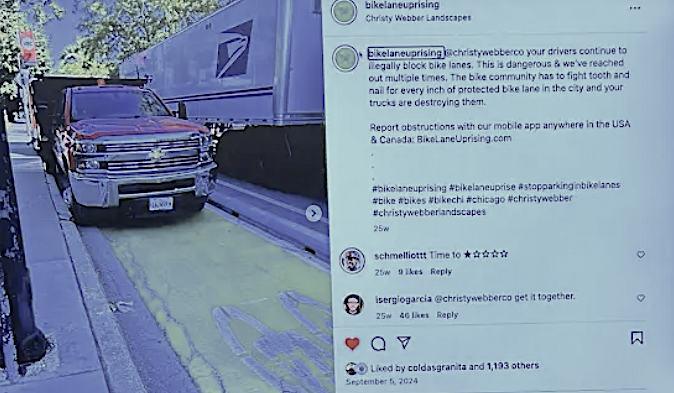
Whitehouse observed that many drivers had never been taught the rules about a variety of new bike accommodations that the Chicago Department of Transportation has installed in the last few years. Many of the Christy Webber trainees were unfamiliar with bike boxes, didn’t know what ghost bikes signify, and weren’t aware that it is illegal for anyone 12 or over to ride on sidewalks in Chicago. Of course, this educational gap goes for commercial and personal vehicle drivers alike, and Whitehouse said BLU is working with Secretary of State Alexi Giannoulias to get bike lane education on the Illinois driver’s license exam.
One particularly effective aspect of the training was sharing the stories of people who lost their lives due to bike lane obstructions. This included three-year-old Lily Shambrook, who was riding on the back of her mother's bike when a ComEd truck driver illegally parking in a bikeway caused the child to be thrown under the wheels of a Mondelez semi operator. Whitehead said sharing stories like these "hit home" with the trainees.
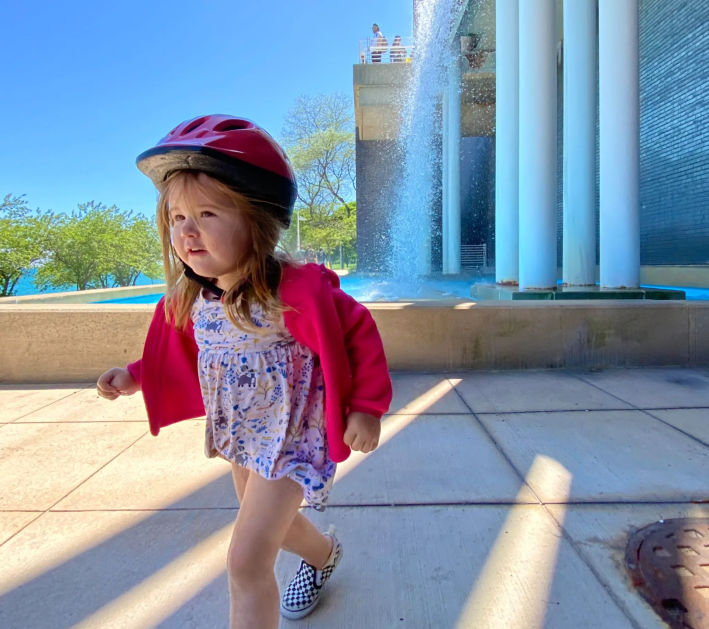
The training agenda included a case-by-case review of each Christy Webber obstruction in the BLU database. Whitehouse said trainees scrutinized photos to figure out who drove each truck and "had fun calling each other out." Recommendations for how to avoid these obstructions in the future were provided, including other parking options; advocating for loading zones and staging areas; and using shared Google Maps to help drivers identify restrooms, gas stations, hydrants (for landscaping water supply), and lunch spots.
The training included potential legal liabilities to companies and drivers parked in bike lanes. Along with the fleet training program, BLU will begin issuing legal notices to companies reported to their database. Ultimately, the organization's goal is to use its database to prevent future bike lane obstructions. BLU started in Chicago and is now nationwide, so the organization is looking at how to improve fleet safety in other cities. Near the end of the presentation, Whitehouse put up a logo ("In corporate-friendly blue," she quipped) for a new company called "Uprise," which would aggregate data and provide bike safety training for fleet operators across the country.
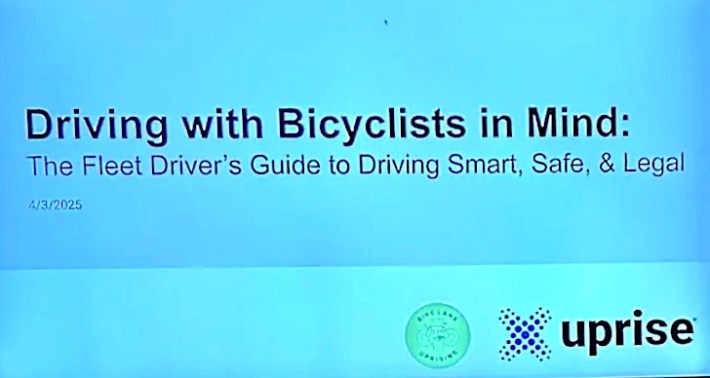
The scale and vision of BLU’s new program felt almost out of step with the setting of the announcement: an unfinished room and intimate crowd seated on benches in the back of a bike shop. But Whitehouse said the low-profile announcement is how the volunteer-driven organization, which crafted the extensive training program on weekends and off-hours, must operate. "We don’t talk about it until we’re done," she said.
Hopefully BLU’s new training, based in education, empathy and accountability, will lead to fewer blocked bike lanes, and drivers killing fewer people on bikes, in Chicago and nationwide.

Did you appreciate this post? Streetsblog Chicago is currently fundraising to help cover our 2025-26 budget. If you appreciate our reporting and advocacy on local sustainable transportation issues, please consider making a tax-deductible donation here. Thank you!
